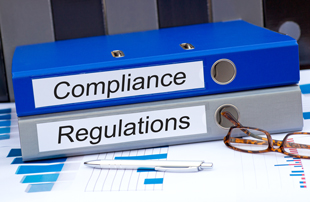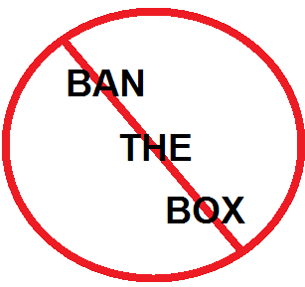Explore our background check services, including solutions for special industries.
When you receive the Consumer Report from your background screening company, also called a consumer reporting agency (CRA), do you know what your next step is legally if you don’t plan to hire the applicant? Look no further than the Fair Credit Reporting Act (FCRA) for guidance on this issue.
The FCRA regulates the collection, distribution and use of consumer information, which includes Consumer Reports, also known as employment background checks. Background checks can contain information from a variety of sources, including credit reports, employment verifications and criminal record searches.
Employers know the importance of following the requirements of the FCRA and including it in their policies and procedures. The problem is that more and more organizations are failing to adhere to basic FCRA requirements.
Class-Action Lawsuits: What are Employers Being Sued For? Who Settled?
If you were to go online and search “FCRA class-action lawsuits,” you’d find numerous results of organizations that have allegedly violated the FCRA, with many of them agreeing to pay thousands to millions of dollars to settle the lawsuit.
Just a handful of the organizations that settled are:
- Dollar General agreed to pay $4 million in a settlement that claimed it didn’t properly notify more than 200,000 applicants that background checks would be obtained.
- Food Lion agreed to pay almost $3 million for two separate class-action lawsuits. The first class stated that Food Lion allegedly failed to provide applicants with a stand-alone disclosure form. The second class stated they allegedly did not send the required notice of the background check report to applicants before adverse action was taken.
- Chuck E. Cheese (also known as CEC Entertainment, Inc.,) agreed to pay $1.75 million in a settlement that claimed they provided improper background check notices during the hiring process when they did not provide a separate, stand-alone authorization form, and their disclosure form did not include the checkbox for applicants to receive a copy of the Consumer Report, which is required under California state law.
- Whole Foods agreed to pay nearly $803,000 over allegations that they did not properly disclose to applicants that they were running a background check on them.
- Home Depot agreed to pay $1.8 million after allegedly not having proper background check forms for its applicants.
According to an August 2014 report from labor law firm Littler Mendelson, at the time of publication, there were no fewer than 27 nationwide FCRA class-action lawsuits that had been filed against employers in various industries.
To help you cut through the confusion and get back to the basics, here are the four steps you must follow to comply with FCRA requirements:
Step 1: Employer Certification
If you work with a CRA, such as Clarifacts, to conduct background checks, you are required to certify the “permissible purpose” about why you are obtaining the consumer report. You must also certify that you will:
- Not use any of the information found in the Consumer Report in violation of any federal or state equal opportunity laws
- Get all of the needed disclosure and authorization forms as required by the FCRA
- Give the appropriate pre-adverse and adverse action notices to the applicant if you don’t plan to hire him or her based on the results of the background check
- Give the additional information required by law if an Investigative Consumer Report is needed. (A reference interview is an example of an Investigative Consumer Report where the CRA obtains detailed information on the applicant’s job performance.)
The FCRA was enacted to better protect employees, and help regulate the type and amount of information that employers can obtain during the hiring process.
Many CRAs already have user agreements included in their policies and procedures that you are required to sign before entering into a business relationship.
Step 2: Disclosure and Authorization
Once you have given the CRA employer certification, you are required to disclose to the applicant that you may be obtaining a Consumer Report on them. This notice to the applicant is known as the disclosure form.
In addition to the disclosure form, the applicant must receive, and sign, the authorization form which permits the employer to run the background check.
The disclosure and authorization forms must be stand-alone documents that are separate from the application.
As mentioned earlier with Chuck E. Cheese, this is one of the main places where employers are having issues because they are burying the authorization form within the employment application. It should be obvious to the applicant that they are signing an authorization form that allows you to run a background check on them.
Step 3: Pre-Adverse Action
After you have received the Consumer Report back from the CRA, if you decide not to hire the applicant based on their background check results, you are required to provide the applicant with a copy of their Consumer Report, the pre-adverse action letter and “A Summary of Your Rights Under the Fair Credit Reporting Act.”
The purpose of the pre-adverse action letter is to give the applicant an opportunity to review the Consumer Report. If the report is inaccurate or incomplete, the applicant has the opportunity to contact the CRA to dispute the information contained in the report.
The pre-adverse action letter helps minimize the possibility of the applicant being denied employment, or promotion, without him or her knowing they were a victim of insufficient or erroneous information.
The FCRA does not comment on the amount of time employers should give the applicant to dispute the information, however a reasonable amount of time should be given before you make a final decision – five business days is pretty common.
The pre-adverse action process must also be followed if you re-screen a current employee and fire them, or refuse to promote them, based off of the Consumer Report results.
Step 4: Adverse Action
The final step you must take is to send the applicant the adverse action letter. The letter is required to include the name, address and phone number of the CRA, and a statement that explains the CRA had no role in the decision to not hire the applicant, and is not able to explain why the decision was made.
The letter also has to include a statement letting the applicant know they have the right to dispute any information contained in their Consumer Report, and that they can request additional free copies of the Consumer Report from the CRA within 60 days.
The letter also needs to include another copy of “A Summary of Your Rights Under the Fair Credit Reporting Act.” Under the FCRA, employers are required to notify the applicant twice, both before and after adverse action. This gives the applicant the maximum opportunity to correct any incomplete or inaccurate information in the Consumer Report that can hurt their chances at employment.
Continuing to Stay FRCA Compliant
In an effort to mitigate the risk of violating the FCRA, you need to incorporate these four steps into your policies and processes and procedures. Follow these steps every time you obtain a Consumer Report on an applicant or re-screen a current employee.
Background check compliance is at the core of what we do here at Clarifacts. We always recommend you work with a knowledgeable legal counsel on specific responsibilities.
If you have questions about background check compliance, give us a call at 602.258.8858 or toll free at 800.318.0553.
©2016 Clarifacts
Please Note: Information and resources provided by Clarifacts are for educational purposes only and should not be construed as, or a substitute for, legal advice. Employers should consult legal counsel about their specific compliance responsibilities under federal, state and local laws and any other applicable legal and regulatory requirements.

Kevin Klimas
Kevin Klimas is the president and founder of Clarifacts, an employment background screening company serving conscientious clients for more than 20 years. As a founding member and former board member of the Professional Background Screening Association (PBSA), Kevin is outspoken about screening the right way. In fact, he speaks on this topic at HR conferences and in various media outlets, sharing his enthusiasm for helping others understand all things background checks. Kevin is a member of SHRM and holds a Fair Credit Report Act Advanced Certification from PBSA. He has a Bachelor of Science in criminology and criminal justice from Arizona State University (Forks Up!) and has nearly completed his quest to visit every Major League ballpark.
About Clarifacts
Clarifacts is a pre-employment background check company specializing in personalized solutions for human resources leaders. From basic screenings to more specific services for specialized industries, Clarifacts has the experience, knowledge and technology to create a better background check experience, supported by a friendly, responsive, tenured team.
Insights for HR Pros
Sign up for monthly(ish) in-depth articles and helpful tips to broaden your background screening knowledge.
Ban the Box: What Hiring Managers Need to Know
What is it? The so-called “ban the box” movement is popping up all across the country. Ban the box is …
Clarifying the Employer Burden Under EEOC Enforcement Guidance
The heated debate over the legitimacy and fairness of the EEOC’s Enforcement Guidance (No: N-915-.002) issued back in April of …
New Legal Trends Impacting Candidate Screening
The legal landscape related to employment background screening is changing at a much faster pace these days. The federal Fair …
Get Started with Clarifacts
See why so many HR leaders make the switch to Clarifacts for their background checks. Tell us about your needs, and we’ll get to work on your custom pre-employment screening program.




